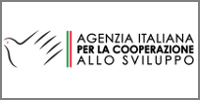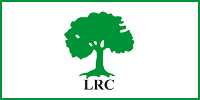Eco-sustainable intervention to enhance agro-pastoral productivity in arid and semi-arid areas of Hebron Governorate
All people have a homeland to live in….but our homeland lives in us. (unknown Palestinian)
The Palestinian people and their land are still under occupation. The fragmentation of the Palestinian Territories in separated and incommunicable areas, the construction of the separation wall by Israel, the missing development of Gaza Strip after the Israeli disengagement, have led to the increasing of forms of violence as expression of humiliation and lack of alternatives, frustration and fear. Lacking the peace process both parties – Palestinian and Israeli – are stuck to a non-return situation of instability. In the Palestinian Territories the situation becomes very critical.
The agriculture in Palestine is suffering from occupation-related actions by Israel (confiscation of land and water resources, uprooting of trees, closures and blockades, restricted access to land and natural resources) resulting in inefficiencies and weak competitiveness. In the West Bank , the population has lost access to 40% of the land, 82% of the ground water and over 66% of rangeland.
An estimated 90 Palestinian communities in the West Bank – which have land within (or in the vicinity of) 55 Israeli settlements and settlement outposts can access their land only through ‘prior coordination’ with the Israeli authorities. If ‘prior coordination’ is approved, access is generally granted for a limited number of days during the annual olive harvest, when Israeli soldiers are deployed in the area. Moreover, the drop out or under-use of land expose the farmers at the risk of confiscation by the Israeli military authority.
Project
The project implemented by CRIC (Centro Regionale d’Intervento per la Cooperazione) in partnership with the LRC (Land Research Center) contributes to mitigate food insecurity of the most vulnerable communities in the arid and semi-arid areas of West Bank, proposing an eco-sustainable system for agro-pastoral management. The aim is to increase agricultural productivity, preserve biodiversity and reduce dependence from imported products (food and feed).
The project contributes in building the capacities of the Local Authorities and the agricultural cooperatives as well as woman associations in Al Dahirya area (Southern Hebron District, oPT) to analyse the assets, the limits and the potentialities of their territories with a specific focus on agriculture and related productive activities through exchanging visits, international expertise, technical assistance and extension services.
The project aims at developing the agricultural sector by enhancing food sovereignty and ensuring access to natural resources to local communities. This challenging outcome will be achieved through the setting up of an action plan which will guide the communities to preserve the agro-biodiversity characterising the area, adopting a scheme of Community Biodiversity Management and to valorise the local identity strongly bounded to the agricultural landscape itself. The developmental approach characterising the intervention is promoted through the direct involvement of the beneficiary community in planning project activities.
Results
Agricultural productivity is increased in Hebron District through a pilot reclamation in 300 ha area of Al Dahirya hydrologic basin with the main aim of increasing the cultivable land, enhancing efficiency in farming activities and facilitate access to land.
300 farmer families are involved in the activities. In the first year of project an area of 120 ha has been rehabilitated through the construction of 1000 m2 of stone retaining walls, 250 m2 of barriers and 9 Ton of drought resistant seeds provided by ICARDA (International Center for Agricultural Research in Dry Areas) have been distributed to farmers. In the second and third years the project will accomplish the rehabilitation of 300 ha, will provide the farmers with 3000 mc of rain water harvesting cisterns, 18 Ton of drought resistant seeds, 15.000 fruit tree seedlings
Specific trainings are given to rural communities (farmers and herders) and individuals, competent local authorities and community based organisations to improve know how and agronomic practices on environmental resources management (water and soil) by applying models adaptive to climate change, replicable in similar pedological areas of West Bank and respectful of biodiversity and landscape assets.
150 farmers and cooperatives members are trained to build their capacities on: farm conservation and management of genetic resources; participatory plant breeding; grass-root quality certification of seeds; seeds exchange and marketing; dairy product processing, packaging and marketing.
International experts are actively advising employees of the PNA-Ministry of Agriculture to increase their knowledge on climate change effects and Community Agro-biodiversity Management at a landscape scale.
About us
The Centro Regionale d’Intervento per la Cooperazione (CRIC) is an italian no-profit association established in 1983; its intent is to carry on a south–south cooperation based on the sharing of resources, positive values and experiences in a perspective of mutual exchange among South of Italy and South of the World. CRIC has implemented programs in Italy and abroad (Middle East, Mediterranean, Balkans and Latin America), promoting local sustainable development, agro-ecology, food sovereignty, solidarity economy, risk reduction and social participation. In some areas, these initiatives have been accompanied by humanitarian aid for populations affected by severe environmental crises or conflicts, but always privileging a prevention approach. Furthermore, the CRIC has promoted initiatives to raise public awareness about the causes of the recurring global crisis, the economic gap between the North and the South as well as aimed to a better understanding of migration phenomena, promoting intercultural approach and the building of inclusive societies | www.cric.it
The Land Research Center (LRC) was established in Jerusalem in 1986 as a branch of the Arab Studies Society and is an independent, non-governmental, non-profit Palestinian organization whose activities cover areas in the West Bank (including East Jerusalem) and Gaza Strip. Its activities cover two main fields: monitoring the violation of human rights in the West Bank and the Gaza Strip and agricultural development through studies and researches as well as land reclamation projects | www.lrcj.org



